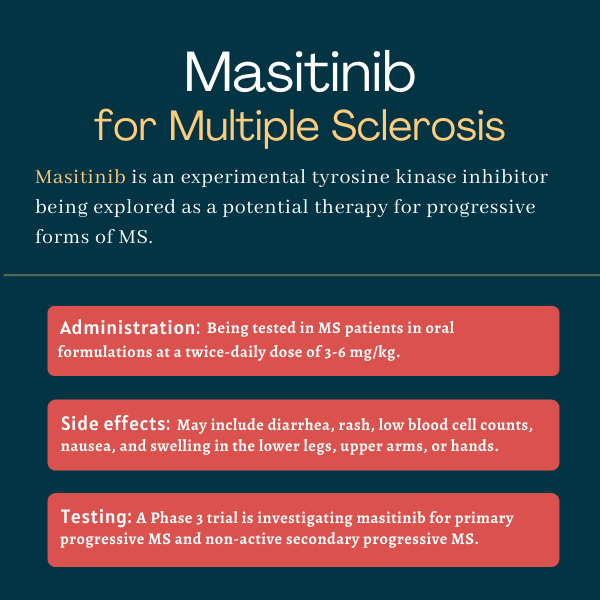FAQs about masitinib in MS
Masitinib is an experimental oral therapy that is not yet approved for multiple sclerosis (MS). It is designed to suppress the activity of mast cells and microglia, specific immune cells thought to drive brain inflammation and nerve cell death in progressive forms of MS, including primary progressive MS and non-active secondary progressive MS. In clinical trials, the therapy helped slow disease progression in patients with these forms of the disease.
In Phase 2 and Phase 3 clinical studies, masitinib showed promising results in people with progressive forms of multiple sclerosis, and a larger Phase 3 trial is ongoing to confirm the therapy’s benefits in these patients. Should these results be positive, masitinib could be closer to a potential approval by the U.S. Food and Drug Administration, but this process could still take several years.
Animal data suggest that masitinib may cause harm to a developing fetus. However, clinical trials of masitinib have not enrolled and are not accepting pregnant or breastfeeding women, so it is unclear whether the therapy is safe in such conditions.
In a Phase 2b/3 clinical trial, masitinib over two years significantly lowered the proportion of patients who experienced disability progression. It remains unclear when masitinib-related improvements become evident to patients.
Hair loss and weight gain were not reported as side effects of masitinib in clinical trials for multiple sclerosis. Patients should talk with their healthcare team if such events occur.
Related Articles

 Fact-checked by
Fact-checked by 






